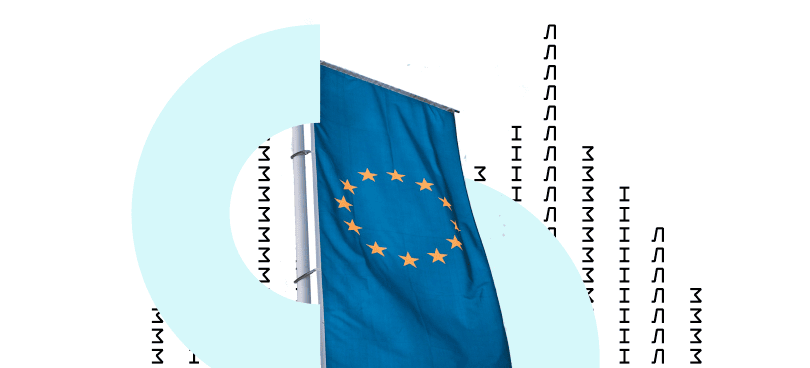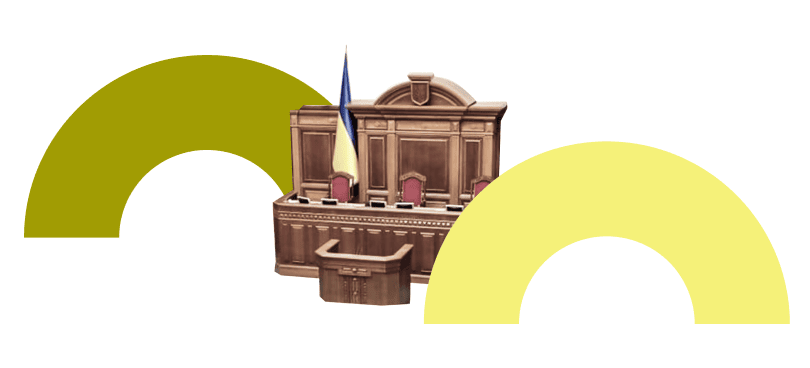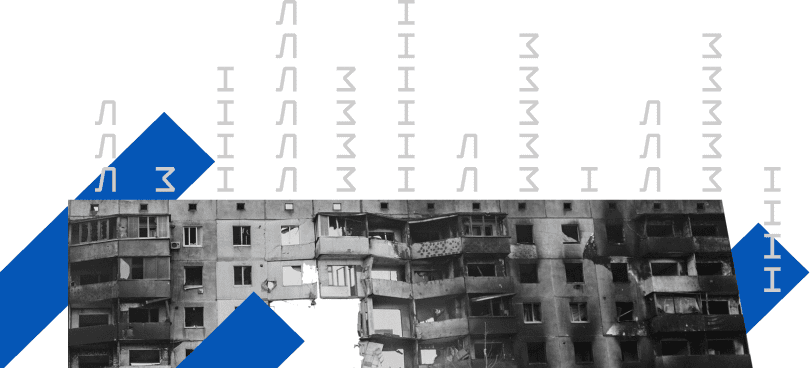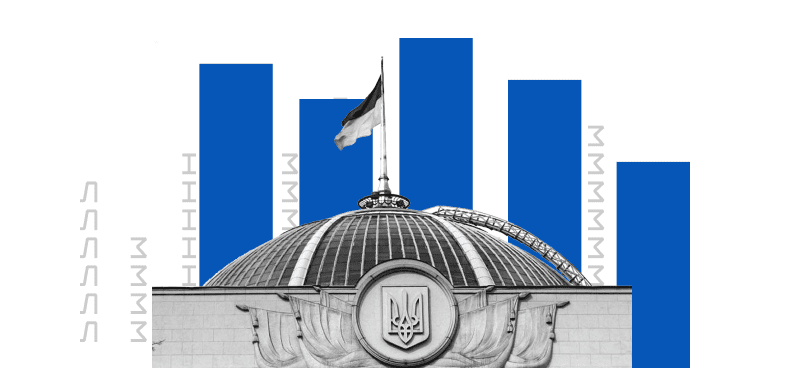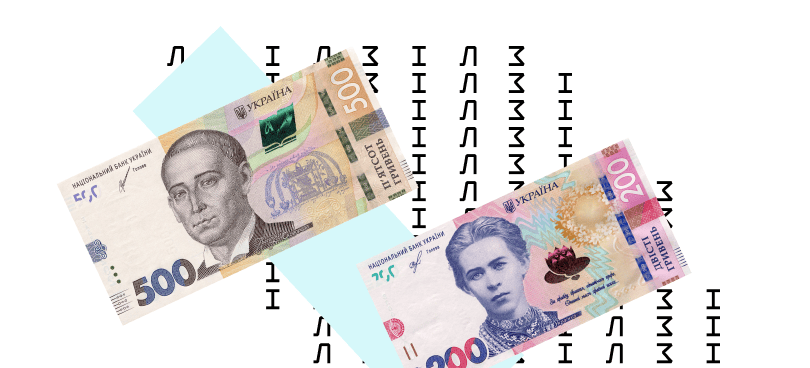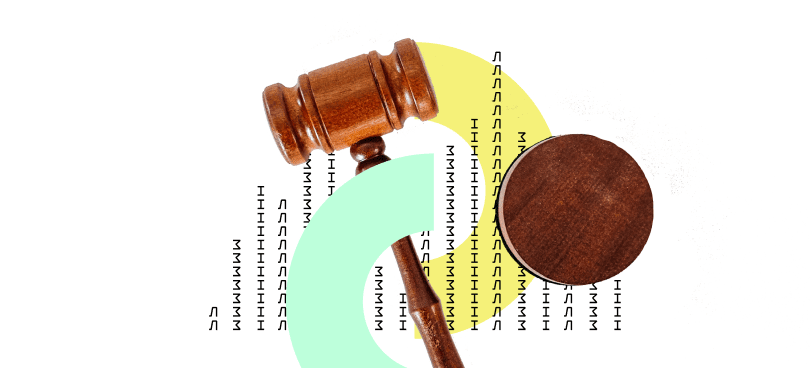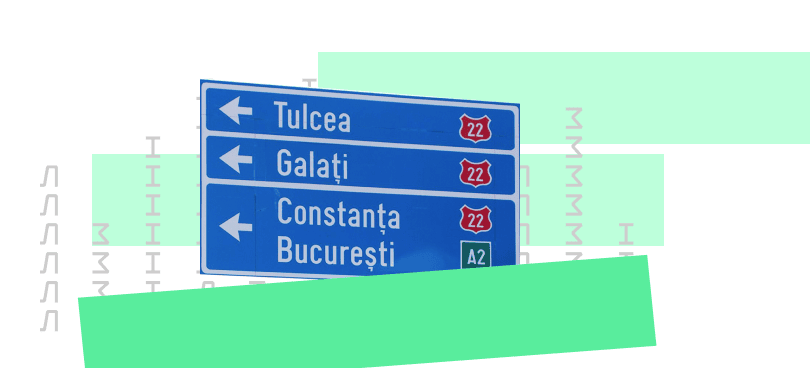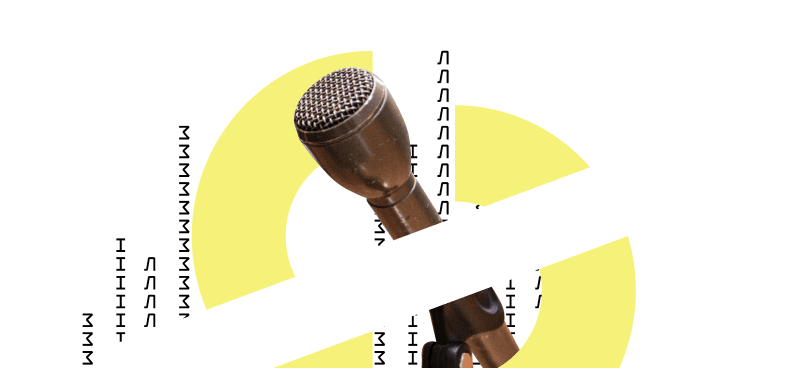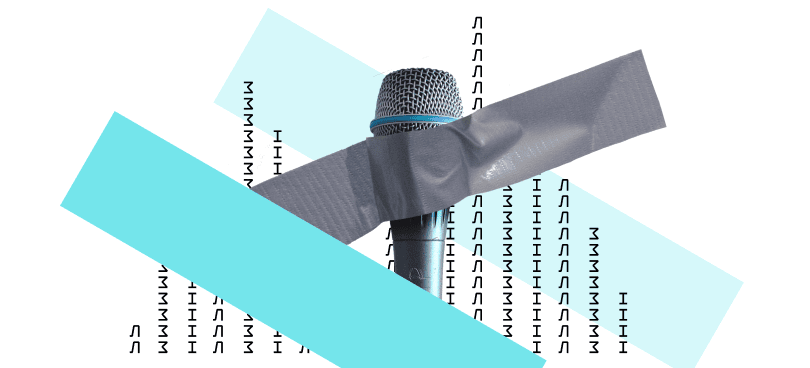This winter, we wrote about the heavy fate of the draft Code of Ethics for MPs, which could have become a tool for strengthening the subjectivity of the Verkhovna Rada (Parliament) of Ukraine (through the introduction of effective self-regulatory mechanisms) and increasing the level of trust in the single legislative body (by strengthening the requirements for MPs behaviour and introducing effective sanctions and control mechanisms).
At that time, we could only talk about semi-public debates around this Draft Law (No. 8327 “On Amendments to Certain Legislative Acts of Ukraine Regarding the Rules of Ethical Behaviour of MPs of Ukraine (Code of Ethics)”), as well as the attempts of the Standing Committee to propose its own version with much less potential — in keeping with the tradition of “Ukrainian-style reforms with no real changes”. However, at the end of January, the opinion of the MSED (Main Scientific and Expert Department) was released. Many of the comments made by the experts of the Verkhovna Rada Secretariat somehow echo the arguments against the provisions of Draft Law No. 8327, which the Chairperson of the Standing Committee voiced at various venues throughout the year (meetings of the Working Group on the Reform of the Verkhovna Rada of Ukraine, political meetings of the representatives of factions and groups in the Jean Monnet Dialogues format).
We cannot but take this opportunity to provide comprehensive responses and counter-arguments to the criticisms, which we believe are mostly politically motivated. We will further provide a step-by-step summary of the comments and our responses thereto. The full text of the MSED’s opinion is available here.
Comment No. 1
The MSED notes that a code […] is a collection of rules within a single instrument and governs a homogeneous sphere of social relations. Therefore, the proposal to call a law amending several instruments a “code” seems incorrect from a legal point of view. Therefore, we believe that the reference to a code of ethics should be removed from the title of this Draft Law.
Article 10 (Part 2) of the Law “On Lawmaking” defines the forms in which a law is adopted. If to use this classification, then Draft Law No. 8327 falls under the definition of a “law on amendments” (as indicated in the title of Draft Law No. 8327), and not a “code of Ukraine”.
However, the logic behind this Draft Law title is that the development and adoption of a Code of Ethics (or Code of Conduct) for MPs is a specific recommendation of several international organisations (OSCE/ODIHR, Group of States against Corruption (GRECO), Council of Europe, European Parliament’s Assessment Mission). Such a document exists in many countries (including those where codes “are a collection of rules contained within a single instrument and regulating a homogeneous sphere of social relations”, and is called exactly that. The peculiarity of the Ukrainian case is that the implementation of this recommendation (following many rounds of discussions) is possible only through amending a number of existing instruments, and not by adopting one holistic, completely new one. At the same time, it is quite standard and even common practice for Ukrainian legislators to add the following bracketed wording at the end of the standard formula: “on amending certain legislative acts of Ukraine regarding”. For example, a number of currently effective acts contain the clarification — (COVID-2019) — in their titles.
At the same time, the presence of the phrase “Code of Ethics” in the title of the Draft Law is not crucially important, so the Draft Law title can be changed at the stage of its finalisation before the second reading.
Comment No. 2.1
The MSED notes that the establishment of rules for the creation of certain committees that differ from the general procedure seems somewhat controversial.
This comment would be justified if the current parliamentary law instruments did not already provide for special rules for a committee creation that differ from the general procedure for the committees’ formation. However, Article 33-2 of the Law of Ukraine “On Committees of the Verkhovna Rada of Ukraine”already contains such rules. The title of the article literally indicates this: “Powers and peculiarities of formation of the membership of a committee of the Verkhovna Rada of Ukraine, scope of which includes the issue of ensuring the control functions of the Verkhovna Rada of Ukraine over the activities of special purpose bodies with law enforcement functions, special purpose law enforcement agencies and intelligence agencies”.
Moreover, the Main Legal Department (MLD) in its opinion on the Draft Law that created Article 33-2 notes that the provisions on the peculiarities of formation of the membership of one of the committees should be set out in Article 6 of this Law, thus confirming the very possibility of introducing special rules for the formation of the membership of a separate committee.
We can also consider a broader context. The parliamentary reform in Ukraine envisages, among other things, the regulation of the status of the opposition. And one of the main issues of regulating the status of the opposition is the distribution of some committees (and/or positions in these committees) between the coalition and the opposition. In other words, parliamentary reform in this regard can only be implemented if rules for the formation of certain committees that differ from the general procedure are established.
Comment No. 2.2.
The MSED notes that it can be concluded that the Draft Law implies the creation of a separate parliamentary committee to perform one function, i.e. control. It seems that such an approach is not fully consistent with the provisions of Article89 of the Constitution of Ukraine, which stipulates that the Verkhovna Rada of Ukraine shall establish committees “to perform the work of legislative drafting, prepare and conduct the preliminary consideration of issues ascribed to the authority of the Verkhovna Rada of Ukraine, and to perform control functions in accordance with the Constitution of Ukraine”, and shall not take into account that parliamentary committees are currently established by sectoral rather than functional criteria.
Draft Law No. 8327 provides for the establishment of a Committee responsible for monitoring compliance with discipline and standards of deputies’ ethics (hereinafter referred to as the Committee). Indeed, this Committee will be functionally integrated into the general system of committees. This Committee, as well as other committees of the Verkhovna Rada of Ukraine, is subject to the provisions of Articles 1 and 11–14 of the Law of Ukraine “On Committees of the Verkhovna Rada of Ukraine”, which define the status, tasks and functions of committees, i. e. drafting, organisational and controlling ones. Nothing in Draft Law No. 8327 restricts this Committee from performing legislative work, as well as preparing and preliminary consideration of issues within the VRU’s authority. Both the legislation drafting and control functions of this Committee will be performed in accordance with the scope of its competence. The Draft Law itself does not set out the scope of competence of this Committee. They must be established by adopting a relevant resolution. In other words, the content of Draft Law No. 8327, in the context of the Committee’s establishment, stipulates that the Standing Committee will not deal with issues of deputy ethics, but a separate sectoral committee will be established for this purpose.
It should be added that Article 33-2 (regarding the committee responsible for ensuring the control functions of the Verkhovna Rada of Ukraine over the activities of special purpose bodies with law enforcement functions, special purpose law enforcement agencies and intelligence agencies), despite their existence in the Law of Ukraine “On Committees of the Verkhovna Rada of Ukraine” for more than three years, have not yet been challenged by anyone in the Constitutional Court. Moreover, these provisions were adopted by the ninth convocation of the Verkhovna Rada of Ukraine, and it is the current Parliament that is responsible for implementing such provisions in Ukrainian legislation.
Finally, the Verkhovna Rada already de facto has at least one committee with a priority controlling function. The Verkhovna Rada Committee on Freedom of Speech is, in fact, a controlling committee. Since the Verkhovna Rada of the ninth convocation started its work in September 2019, until May 2022, not a single draft law has been assigned to the Committee on Freedom of Speech as a main committee. As of February 2024, only 3 (three) draft laws were assigned to this Committee as the main committee. That is, the Committee on Freedom of Speech received its first assigned draft law in the third year of its existence, and in five years, there have been three such draft laws, which is less than 1 per year. Instead, the Committee on Freedom of Speech dealt with issues of censorship, attacks on journalists, false information, etc. In other words, it performed a controlling function.
Comment No. 3
The MSED notes that vesting the Chairperson of the Verkhovna Rada of Ukraine with a number of powers related to the imposing of disciplinary sanctions on the MPs raises certain doubts in terms of compliance with the Constitution of Ukraine.
Currently, the Chairperson of the Verkhovna Rada of Ukraine already has such powers. Article 33 (Part 5) of the Law of Ukraine “On the Status of the Member of Parliament of Ukraine” provides that the reimbursement of a member of parliament expenses related to his/her performance of parliamentary powers shall be terminated by the order of the Chairperson of the Verkhovna Rada of Ukraine, which is issued based on a decision of the committee responsible for the MPs ethics. Such powers of the Chairperson of the Verkhovna Rada are in line with the powers defined in Article 88 of the Constitution, according to which the Chairperson of the Verkhovna Rada of Ukraine […] organises the work of the Verkhovna Rada of Ukraine and coordinates the activities of its bodies.
The rules on granting the Chairperson of the VRU such powers (to stop reimbursement of expenses…) were adopted already in the ninth convocation of the Verkhovna Rada. The opinions of the MSED and the Standing Committee on the draft law introducing such provisions do not contain any comments on the unconstitutionality of granting the Chairperson of the VRU the relevant powers. Moreover, the Standing Committee of the ninth convocation not only did not make such comments but also directly called for support for the proposal of the authors of the Draft Law to adopt it as a basis and thus supporting the granting of the power to terminate payments to the MPs to the Chairperson of the VRU.
Comment No. 4
In terms of the rule proposed by Draft Law No. 8327, according to which a member of parliament does not submit parliamentary inquiries and appeals on issues of no public interest, the MSED notes that in their opinion [MSED’s opinion], this provision is poorly formulated and needs to be improved. Firstly, the public interest criterion is of an estimative nature, and the relevant provision can be applied quite subjectively. Secondly, according to Article 15 (The Right of a Member of Parliament to File a Parliamentary Inquiry) and Article 16 (The Right of a Member of Parliament to File a Parliamentary Appeal), the requirement of compliance with the public interest is not imposed for the parliamentary inquiry and appeal.
The introduction of the rules on the relevance of inquiries and appeals to the public interest by Draft Law No. 8327 is due to the frequent use of such tools for the personal benefits of the MPs.
The use of the member of parliament’s mandate in the public interest follows from many provisions of the laws and the Constitution of Ukraine. The text of the member of parliament’s oath of allegiance to Ukraine, as set out in Article 79 of the Constitution, clearly demonstrates the importance of the public interest: “I swear allegiance to Ukraine. I commit myself with all my deeds to protect the sovereignty and independence of Ukraine, to provide for the good of the Motherland and for the welfare of the Ukrainian people. I swear to abide by the Constitution of Ukraine and the laws of Ukraine, to carry out my duties in the interests of all compatriots”. At the level of the law, e. g., Article 1 (Part 1) of the Law of Ukraine “On the Status of the Member of Parliament of Ukraine” stipulates that a member of parliament is a representative of the Ukrainian people.
Concerns about the estimative nature of the public interest, raised by the MSED, are based on the fact that the relevant provisions will be used to punish political opponents. Draft Law No. 8327 provides that this problem should be resolved by the relevant Committee, which is formed on a parity basis, and therefore requires a consensus of the opposition and coalition representatives to establish the absence or presence of public interest in requests or appeals, which turns a value judgement into a consensus opinion. The problems of inconsistency with Articles 15 and 16 of the Law of Ukraine “On the Status of the Member of Parliament of Ukraine” can be resolved by amending these articles at the second reading stage. For example, by supplementing these articles with relevant requirements.
Comment No. 5
In terms of the procedure for consideration of complaints on violation of the parliamentary ethics standards and the procedure for appealing against decisions on a member of parliament’s responsibility for violation of the parliamentary ethics standards, the MSED notes that the provision of the Draft Law on the possibility for the relevant parliamentary committee to independently establish the procedure for consideration of complaints on violation of the parliamentary ethics standards and the procedure for appealing against decisions on a member of parliament’s responsibility for violation of the parliamentary ethics standards is not consistent with the current constitutional provisions, the Rules of Procedure and the Law of Ukraine “On Committees of the Verkhovna Rada of Ukraine”. The very approach that entrusts a parliamentary committee with establishing the rules of its own activities, i.e. its own rights and obligations, also provokes objections. After all, this is a violation of the fundamental principles of control, according to which the activities of the controlling body should be limited by the law and subject to procedural rules. The controlling authority cannot act on the basis of independently established rules since this may adversely affect the objectivity of control measures and create grounds for abuse and subjectivity in the exercise of its control functions and decision-making.
These comments may well be taken into account at the stage of preparing the Draft Law for the second reading. For instance, these provisions could be amended so that the procedure for considering complaints and the procedure for appealing decisions on liability are determined by the Verkhovna Rada or the Chairperson of the Verkhovna Rada. In addition, such provisions could be set out in the Regulation on the Committee’s Secretariat, which is approved by the Chairperson of the Verkhovna Rada.
At the same time, the grounds for abuse and subjectivity in the Committee’s activities should be eliminated by ensuring parity of representation of the opposition and the coalition.
Comment No. 6.1
The MSED provides comments on the Draft Law with regard to the removal of Parts1 and 2 from the current Article 51 of the Rules of Procedure, which prohibits the brining into the parliamentary chamber and use of posters, slogans, loudspeakers, and other items not intended to support legislative activities during the plenary session, and the inadmissibility of interfering with the presentation or perception of a speech at a plenary session (by shouting, applause, standing up, talking on a mobile phone, etc.), using offensive language and obscene words, and calling for illegal actions. This approach is objectionable since the relevant regulations are designed to ensure the creation of the necessary conditions for the normal work of parliamentarians in plenary mode, and their removal from the text of the law will worsen the regulatory regulation of the relevant issues. Moreover, such provisions are in a stable logical connection with the following parts of the said Article and have the appropriate legal detail.
The above-mentioned provisions of Parts 1 and 2 of Article 51 of the Rules of Procedure are essentially declarative or “dead” norms. MPs, both representatives of the coalition and the opposition, constantly bring into the parliamentary chamber objects that are not intended to support legislative activity, often, these are posters, which are explicitly prohibited in Article 51 (as seen in the materials of Unian, LB and Glavkom). MPs also often shout, applaud, stand up, and talk on mobile phones in the parliamentary chamber. Among the recent events, we can mention the events of 10 January 2024, when the Chairperson of the VRU terminated the session early due to shouting and noise in the chamber (as seen in the transcript and video). In general, it is difficult for a regular viewer of the Verkhovna Rada of Ukraine sessions to imagine the work of the MPs without shouting and applause during the presentation or perception of a speech, although this behaviour is recognised as unacceptable by the current Rules of Procedure. All of these actions have long been part of parliamentary behaviour and do not result in sanctions against violators. Therefore, their exclusion from the Rules of Procedure is unlikely to change the actual behaviour of the MPs.
The rules proposed by Draft Law No. 8327 to replace the existing but ineffective ones, such as non-use of physical force, respect for colleagues, non-use of obscene words, etc., are more general rules that aim to ensure the same goal (maintaining order during the work of the MPs), but in combination with other logically related rules of the Draft Law (in particular, the system of sanctions and the mechanism for bringing violators to justice), they seem to be a much more effective tool.
In other words, the Draft Law replaces the existing but ineffective rules with a new holistic system of rules and mechanisms for their implementation, which, in essence, corresponds to the meaning of the “code” concept, although it is implemented in the form of amendments to a number of acts.
Comment No. 6.2
The MSED notes that it is unclear which issues related to the appeal procedure may be subject to legal regulation of the procedure to be approved by the committee.
The procedure may contain a detailed appeal procedure, while the Draft Law contains only general rules and principles thereof. As noted above, such a procedure may be approved by the Verkhovna Rada of Ukraine or the Chairperson of the Verkhovna Rada of Ukraine. In any case, such things may be finalised at the stage of preparing the Draft Law for the second reading.
Comment No. 6.3
The MSED notes that the provisions of Part 6 of the new Article 51-1 of the Rules of Procedure stipulate that the Verkhovna Rada may cancel a decision on the member of parliament’s responsibility for violating the norms of parliamentary ethics in case of appeal thereof. This means that the Verkhovna Rada of Ukraine may cancel the decisions of a parliamentary committee. However, according to their constitutional and legal status, parliamentary committees are working bodies of the Parliament (Verkhovna Rada) established to perform legislative work in certain areas, prepare and preliminary consideration of issues within the powers of the Verkhovna Rada of Ukraine, and perform controlling functions (Article 1 of the Law of Ukraine “On Committees of the Verkhovna Rada of Ukraine”). When making its own decisions, the Verkhovna Rada of Ukraine takes into account the decisions of parliamentary committees but cannot amend or cancel the decision of a committee of the Verkhovna Rada of Ukraine. In view of the above, the mechanism for reviewing and cancelling these decisions of parliamentary committees proposed in the Draft Law appears to be legally incorrect. The possibility of cancelling the decision of the Chairperson of the Verkhovna Rada of Ukraine on the relevant 7 issues is also questionable, as the construction of such a legal mechanism, in our opinion, has no constitutional grounds.
This MSED’s comment seems to be based on an incorrect interpretation of the provisions of Draft Law No. 8327. The latter actually stipulates that the Committee to be established recommends to the Chairperson of the VRU to make a decision on the responsibility of a member of parliament. The MSED used this interpretation (it is the Chairperson who imposes sanctions) in the third paragraph of its opinion. As for the mechanism of cancellation of the decision of the Chairperson of the VRU by a majority vote of the MPs, such a mechanism is already available in the Rules of Procedure (Part 2 of Article 78): the orders of the Chairperson of the Verkhovna Rada of Ukraine may be amended or cancelled by a decision of the Verkhovna Rada adopted by a majority vote of the MPs from the constitutional composition of the Verkhovna Rada. Based on the provisions of the Rules of Procedure, the Chairperson of the VRU makes decisions that are formalised in the form of an order. In other words, an order is a way to formalise a decision. In order to avoid further misinterpretations (whose decision may be cancelled by the VRU), the relevant provisions of the Draft Law can be finalised before the second reading.
Comment No. 6.4
The MSED notes that the right of a member of parliament to appeal against decisions to hold him/her liable for violating ethics standards is not currently stipulated in the basic provisions of the Law of Ukraine “On the Status of the Member of Parliament of Ukraine” and the Draft Law does not propose any relevant provisions as well.
This quite reasonable MSED’s comment can be considered by amending the Draft Law appropriately when preparing it for the second reading.
Comment No. 7.1
The MSED notes that impeccable reputation and exceptionally high moral qualities are estimative concepts, the meaning of which can be interpreted in different ways and which should be avoided in lawmaking. Thus, the implementation of these novelties of the Draft Law seems problematic.
An impeccable reputation and high moral qualities are indeed estimative concepts. They should serve as a guideline for the MPs in determining the candidacy of the Committee’s Chairperson and Secretary. It is expected that MPs will independently assess the extent to which the candidates meet these criteria. Morality and ethics are concepts that, by their nature, cannot always be interpreted unambiguously. This applies both to other proposed rules of Draft Law No. 8327 (e. g., what exactly constitutes discriminatory expressions, what does the economical use of property mean, what does respectful treatment mean, etc.) and to the existing provisions of the Constitution and acts of parliamentary law. The above-mentioned member of parliament’s oath of allegiance to Ukraine contains many concepts that are not unambiguous, such as “loyalty to Ukraine”, “good of the Motherland”, “welfare of the Ukrainian people”, and “interests of all compatriots”. Article 8 of the Law of Ukraine, “On the Status of the Member of Parliament of Ukraine”, which currently regulates the issue of parliamentary ethics, also contains concepts that can be interpreted in different ways: “1. In his/her activities, a member of parliament shall adhere to generally recognised rules of morality; always preserve his/her own dignity, respect the honour and dignity of other MPs, officials, and citizens; refrain from actions, statements and deeds that compromise him/herself, voters, the Verkhovna Rada of Ukraine, and the state. 2. It is inadmissible for a member of parliament to use his/her parliamentary mandate contrary to generally recognised rules of morality, human and civil rights and freedoms, and the legitimate interests of society and the state. 3. A member of parliament should not use his/her parliamentary mandate for personal, in particular deceptive, purposes”.
In fact, the law cannot but leave room for interpretation of its provisions depending on the context. Self-assessment of candidates for compliance with the above criteria is at the same time: 1) a manifestation of the Verkhovna Rada’s subjectivity, and 2) a link between MPs and their voters through shared values.
Comment No. 7.2
The MSED notes that the new Article 33-3 (Part 4, para. 4) of the Law proposes to provide that a complaint regarding a violation of the parliamentary ethics standards shall not be anonymous. However, the new Article 33-3 (Part 5, paras. 3 and 4) of the Law stipulates that an officer of the Secretariat of the Verkhovna Rada of Ukraine shall address the persons authorised by the committee if such an officer fears pressure from a member of parliament and if the appeal of the officer of the Secretariat of the Verkhovna Rada of Ukraine substantiates the violation of the parliamentary ethics standards, such authorised persons shall register the complaint on their own behalf and act as the complainant. Therefore, the Draft Law provides for both the inadmissibility of anonymous complaints and simultaneously regulates the possibility of filing a complaint by other persons (authorised persons) against the actions of a member of parliament against an employee of the Secretariat, who will remain anonymous. Moreover, the proposed mechanism does not seem to be clear and understandable, at least in terms of which entity and in what way should establish the “validity” of the appeal of the employee of the Verkhovna Rada of Ukraine in order for the authorised person to register the complaint on his/her behalf and act as the complainant.
Draft Law No. 8327 stipulates that an authorised person registers a complaint on his/her own behalf, acting as a complainant. This makes the complaint non-anonymous, as the complaint has a specific author and a specific complainant, i. e. the authorised person.
Draft Law No. 8327 stipulates that the complaint submission mechanism should be detailed in the complaint procedure. In particular, this procedure may clearly establish which entity and in what manner must establish the “validity” of the appeal of an employee of the Verkhovna Rada of Ukraine Secretariat in order for the authorised person to register the complaint on his/her behalf and act as the complainant. Again, such a procedure may be approved by the Verkhovna Rada or the Chairperson of the Verkhovna Rada, and the relevant amendments may be made to the Draft Law at the stage of its finalisation.
Comment No. 7.3
In terms of the closed meetings of the Committee, the MSED notes that the approach used in the Draft Law to determine the grounds for holding closed meetings of the relevant Committee cannot be welcomed given that the cases it considers are of public interest. […] Accordingly, the “agreement” of the complainant and the person whose behaviour is being challenged on closed meetings of the Committee or the absence of such an “agreement” (as proposed in the Draft Law) cannot be considered sufficiently adequate grounds for holding a closed meeting of the Committee to consider the complaint.
The logic of introducing the possibility of closed consideration of violations of the rules of conduct is based on the idea that the very fact of filing a complaint and its consideration may damage the reputation of a member of parliament. This mechanism can be used by political opponents for reputational attacks, which is explicitly stated in the OSCE Background Study: Professional and Ethical Standards for Parliamentarians (Section: Safeguards during an investigation). Moreover, there was a consensus on this mechanism among the relevant parliamentary subgroup of the Work Group on the reform of the Verkhovna Rada of Ukraine. Therefore, in some cases (Draft Law No. 8327 generally provides for open meetings), the possibility of closed meetings is proposed to reduce the potential for using the Code of Ethics as a tool for reputational attacks.
Nevertheless, we believe that the mechanism can be improved and detailed at the stage of preparing the Draft Law for the second reading.
Comment No. 8.1
The MSED notes that the normative material of each part should be rephrased so that the content of the principle is explained in one sentence. Moreover, it is not correct to define the content of the principle through the same term (the rule of prohibition of a circle). In particular, Part 5 “Leadership” is an example of a violation of the relevant rule: “5. Leadership. A member of parliament, by his/her leadership and example…”.
This quite reasonable MSED’s comment can be easily considered at the stage of preparing the Draft Law for the second reading. It requires editorial amendments to certain structural elements of the Draft Law, without changing its content, purpose or the relationship between its individual structural elements.
Comment No. 8.2
The MSED notes that according to the Rules for Law Drafting and Compliance with the Basic Requirements of Legislative Technique (Guidelines) of 27.11.2014, “if it is necessary to emphasise the motives of the legislator, the historical context or other circumstances that serve as a reason for the adoption of the law and/or should be taken into account in the subsequent law enforcement or interpretation of the law to understand the tasks set by the legislator and the ways of achieving them chosen by him in the law, a preamble is placed at the beginning of the draft law. However, legal provisions are not included in the preamble”. It appears that the preamble of the Draft Law under consideration does not fully comply with the above regulatory principles. It should also be noted that the preamble to a law usually begins with the words: “This Law defines…”. At the same time, the preamble to the proposed Draft Law states that “The MPs of Ukraine, in order to strengthen respect, authority and public trust in the MPs of Ukraine and the Verkhovna Rada of Ukraine, … adopt these amendments to the legislative acts of Ukraine on the rules of ethical conduct of the MPs of Ukraine (Code of Ethics)”. This wording is not correct, as the only legislative body in Ukraine is the Parliament, i. e. the Verkhovna Rada of Ukraine (Article 75 of the Constitution of Ukraine). The powers of the Verkhovna Rada of Ukraine include “the adoption of laws” (Article 85(1)(3)).
This comment can be easily taken into account at the stage of preparing the Draft Law for the second reading. It requires editorial amendments to the preamble of the Draft Law, without changing its content, purpose or the relationship between its individual structural elements.
Can Draft Law No. 8327 be adopted?
In general, the MSED’s comments can be divided into two groups. The first group is conceptual comments (comments Nos. 2.1, 2.2, 3, and 6.3), and the second group is technical and legal comments (all other comments).
Article 102 (Part 2) of the Rules of Procedure of the Verkhovna Rada of Ukraine gives us a hint as to what the further fate of the Draft Law should be, which states that “Consideration and adoption of a Draft Law under the procedure of three readings includes: 1) the first reading, i.e. discussion of the basic principles, provisions, criteria, and structure of the draft law and its adoption as a basis; 2) the second reading, i. e. article-by-article discussion and adoption of the draft law in the second reading”. In other words, if the basic principles, provisions, criteria, and structure of the draft law are satisfactory, it can be adopted in the first reading and certain article-by-article changes can be finalised by making amendments at the second reading stage. The MSED’s opinion and analysis thereof is an excellent basis for refining the text of the Draft Law and proves that it is possible to adopt Draft Law No. 8327 as a basis, with its further refinement at the stage of preparation for the second reading.
Important conceptual issues highlighted by the CSE O include, in particular, the issue of a new Committee establishment, the mechanism for imposing sanctions for violations of the rules of ethical conduct, and their cancellation. It is important to note that similar mechanisms and instruments already exist in the current legislation. Moreover, they were introduced by the current, ninth convocation of the Verkhovna Rada, and the MSED, the MLD and Standing Committee agreed to the introduction of these amendments or even directly supported them.
All other comments can be finalised at the stage of preparation for the second reading. In accordance with the Rules of Procedure, it is at this stage that draft laws must undergo detailed technical and legal revision, considering amendments and proposals from the MPs. Moreover, the Verkhovna Rada has recently been actively using the mechanism of adopting draft laws as a basis with further refinement under Article 116 (Part 1) of the Rules of Procedure, which provides for consideration of proposals and amendments to correct, clarify, eliminate errors and/or contradictions in the text of the draft law, other structural parts of the draft law and/or other legislative acts that were not considered in the first reading. There are already more than 60 such draft laws approved in the first reading. Each individual amendment that can be finalised at the stage of preparation for the second reading may be excluded from the text of the draft law. However, if all such amendments are excluded, this may unbalance Draft Law No. 8327. Therefore, it is important to find the right balance between finalising certain amendments proposed by the law and excluding those that are fundamentally opposed by key stakeholders.
In any case, the lawmaking process has never been a set of norms and technical and legal rules. It has always been a combination of political will a desire to change the current state of affairs and legal constructs. Draft Law No. 8327 is the result of extensive discussion, consultations, and the work of a work group chaired by a member of the ruling Sluga Narodu (Servant of the People) faction, which included representatives of most factions of the Verkhovna Rada and extra-parliamentary experts. This demonstrates multi-factional political support for the introduction of rules of ethical conduct for MPs. At the same time, the current legislation contains many tools and mechanisms similar to the conceptual instruments proposed by Draft Law No. 8327. Its technical and legal revision can be carried out at the stage of preparation for the second reading. In fact, the analysis of the CSE’s opinion showed that the adoption of this Draft Law is a matter of political will. After all, the introduction of ethical rules of conduct for parliamentarians is primarily the responsibility of Ukrainian MPs.

